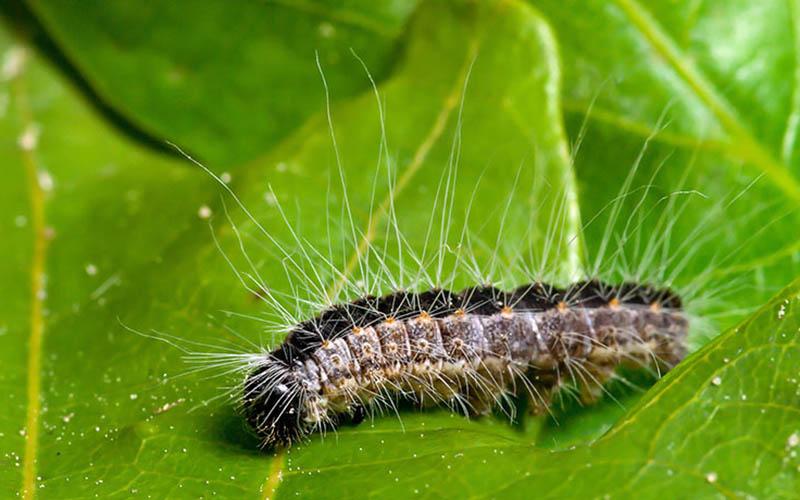
Efforts to control oak processionary moth in the UK
First introduced in the UK in 2005, oak processionary moth (OPM), a prolific pest of oak trees that also poses a health risk to humans and animals, has seen a surge in reported cases across England, Wales and Scotland since the start of July, with 60 known interceptions by the UK Plant Health Service. Now no longer confined to Greater London, OPM, also known as Thaumetopoea processionea, is the subject of a continual government-led programme of surveying and control which is designed to minimise the pest’s population, spread and impact on UK native oaks.
The oak processionary moth caterpillars on recently planted oak trees imported from the Netherlands and Germany are now spreading throughout the Protected Zone, but swift action is being taken by the Forestry Commission, Animal and Plant Health Agency (APHA) and the Devolved Administrations to eradicate recent interceptions, including tracing recent imports of oak trees, on the ground surveillance, and the destruction of caterpillars and infested trees.
The APHA and Scottish Government have issued guidance to landscapers, landowners, woodland managers and nurseries to spray all imported oak trees with an insecticide called Deltamethrin, known in the trade as Bandu or Decis. One litre will be enough to treat approximately 500 trees and can be applied with a knapsack sprayer. PA1 and PA6 operator certificates would be expected. The entirety of the oak tree needs to be sprayed. The hairs from the caterpillars can cause a risk to humans if skin contact is made or if they are inhaled so caution is advised.
Please check any large imported oak trees (girth >8cm at 1.2m above the root collar), and report any findings through TreeAlert. If you trade in oak trees and suspect OPM, please contact your local APHA Plant Health Inspector. As a result of these interceptions, strengthened measures on the import of most species of oak have been introduced to protect the UK from the threat of this tree pest.

